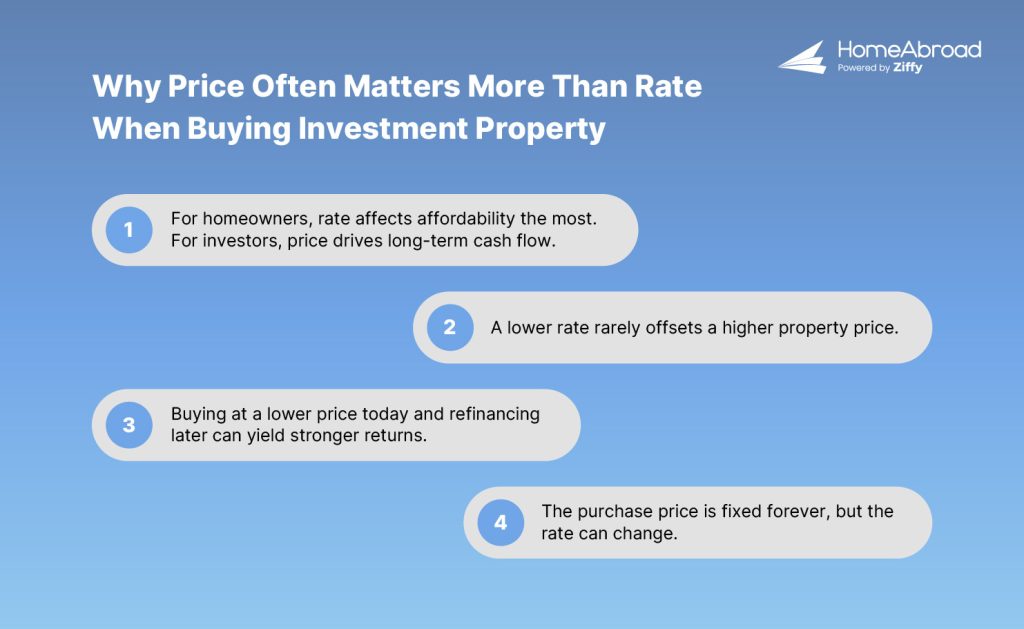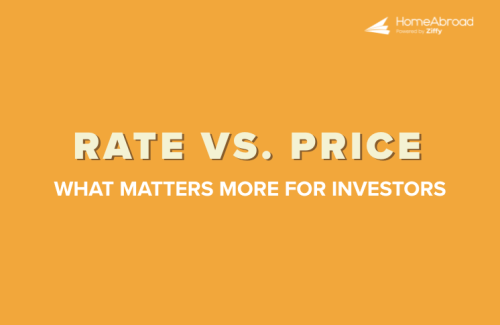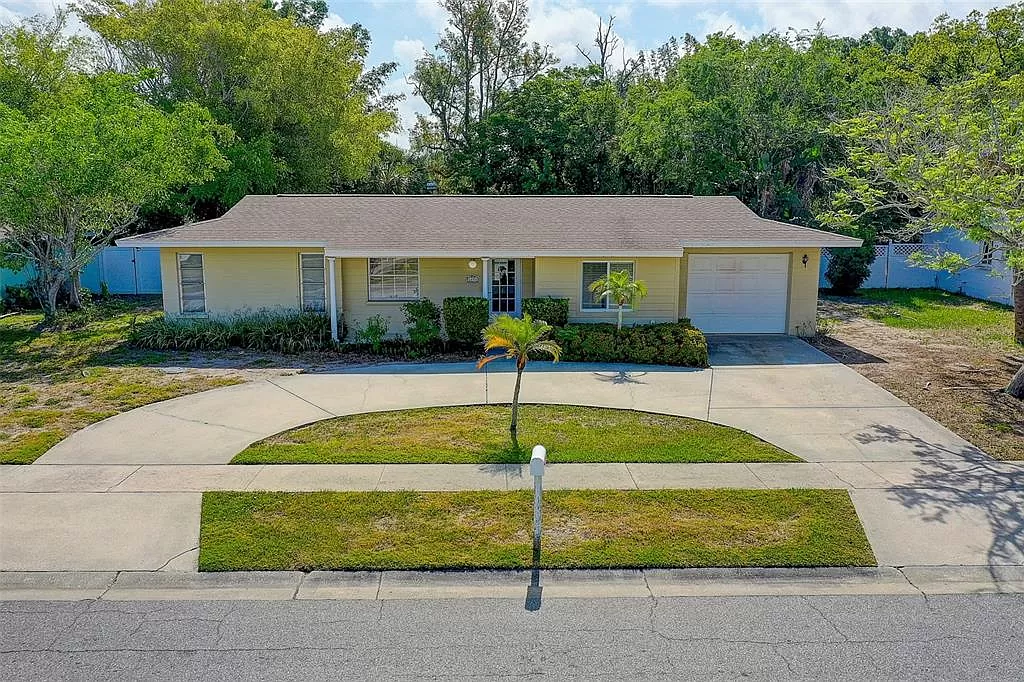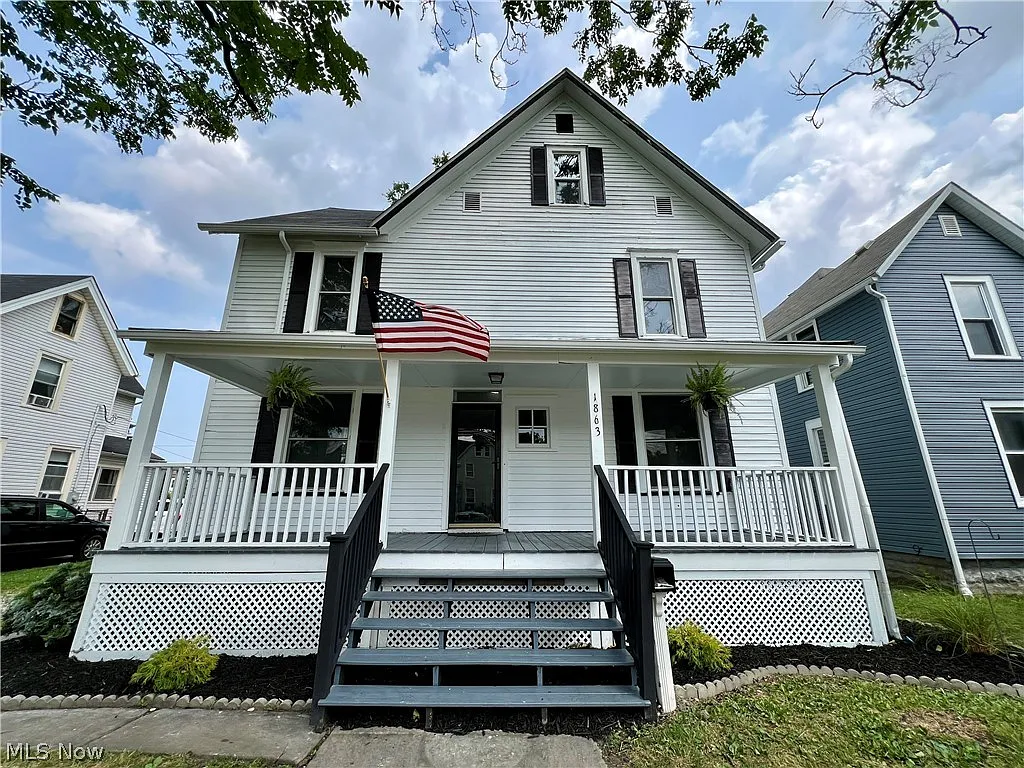Editorial Integrity
Making informed real estate decisions starts with having the right knowledge. At HomeAbroad, we offer US mortgage products for foreign nationals & investors and have a network of 500+ expert HomeAbroad real estate agents to provide the expertise you need. Our content is written by licensed mortgage experts and seasoned real estate agents who share insights from their experience, helping thousands like you. Our strict editorial process ensures you receive reliable and accurate information.
Key Takeaways:
1. For homeowners, rate affects affordability the most. For investors, price drives long-term cash flow.
2. A lower rate rarely offsets a higher property price.
3. Buying at a lower price today and refinancing later can yield stronger returns.
4. The purchase price is fixed forever, but the rate can change.
Table of Contents
Every real estate investor faces this question at some point: Is it smarter to wait for a lower mortgage rate or to buy now at a better price?
The answer isn’t as simple as it sounds. While homeowners often chase lower rates to make monthly payments more affordable, investors have a different equation to solve. In property investing, the purchase price usually has a bigger impact on long-term returns than the interest rate.
A lower price means a smaller loan, lighter monthly payments, and more breathing room for cash flow. Rates can always be refinanced, but the price you pay is permanent.
Rate vs. Price: What The Numbers Show
Understanding how price and rate impact returns becomes clearer when you compare real numbers. Below is a simple example that reflects current market conditions and shows how the two variables influence your monthly payment.
If you waited for a 1 percent rate drop but the price increased by $50,000:
Here’s a simple comparison table that makes the point clear:

Even with a lower rate, the higher price pushes the payment higher than the original scenario. Investors who secure the lower price benefit more over time and still maintain the option to refinance later.
What This Shows:
Even though the interest rate drops, the increase in purchase price still leads to a higher monthly payment. A lower rate cannot undo the effect of a higher loan amount, which is why price has a stronger influence on long-term returns.
Why Price Impacts Cash Flow More
The purchase price directly affects the principal balance, loan amount, monthly payment, and long-term return. Since national home prices are hovering above $400,000 and continue to show moderate year-over-year increases, getting in early allows investors to lock in equity growth and better rental yield potential.
Rates can be adjusted later through refinancing, but the price paid is permanent. This is why price is often the stronger driver of long-term investor performance in today’s market.

Key Metrics Investors Should Track
When comparing properties, focus on metrics that show real earning potential rather than just interest rate difference. On the Ziffy platform, three core metrics help investors make data-driven decisions:
These metrics reveal how effectively a property generates profit. While interest rates affect payments, these numbers show the true strength of your investment.
How Investors Can Apply This
For foreign national investors, locking in a good purchase price early is especially valuable, since HomeAbroad offers foreign national mortgage programs that don’t require a US credit history and provide flexible terms for international buyers.
Conclusion
In today’s US real estate market, prices remain strong even as mortgage rates fluctuate. Waiting for the perfect rate can mean paying more later for the same property. The smarter move is to focus on the price you can secure now and refinance later when rates improve.
At the end of the day, the property price defines your return, while the interest rate simply shapes the timeline of your payoff.
FAQs
Should investors buy now even if rates are high?
If home prices are rising faster than rates are falling, buying sooner can lead to better overall returns.
Can I always refinance later?
Refinancing depends on your financial profile and market conditions, but buying at the right price gives you the flexibility to adjust later.
How can foreign nationals take advantage of this?
Through HomeAbroad, foreign investors can qualify for mortgages without a US credit history, allowing them to secure properties early and strengthen cash flow potential.








![7 Reasons Why Foreign Investors Should Invest in US Real Estate [2026]](https://homeabroadinc.com/wp-content/uploads/2022/03/mathieu-stern-1zO4O3Z0UJA-unsplash-scaled.jpg)














